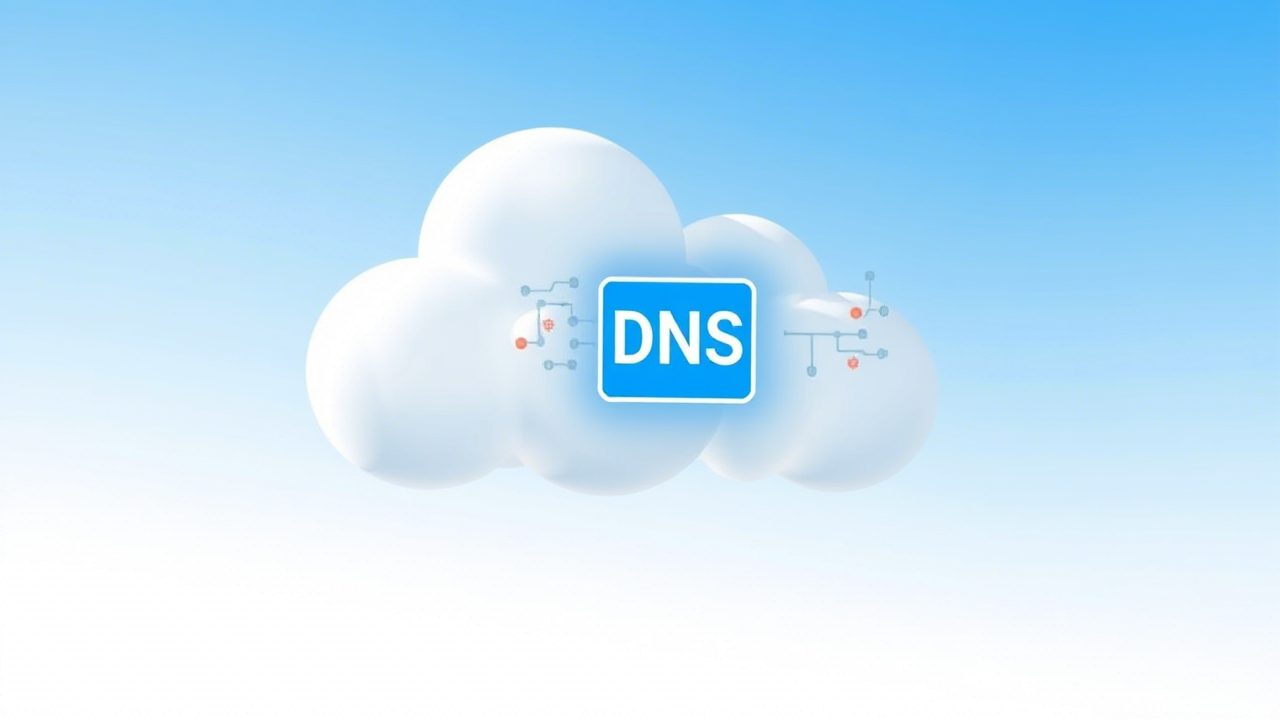In today’s digital age, having a reliable and efficient Domain Name System (DNS) is crucial for any online presence. Whether running a personal blog, an e-commerce site, or a large enterprise, DNS ensures your website is accessible to users. But what if you could manage your DNS without breaking the bank? Enter free cloud DNS—a cost-effective solution that combines the power of cloud technology with the simplicity of free services. In this article, we’ll dive deep into free cloud DNS, how it works, and why it might be the perfect choice for your online needs.
What is Free Cloud DNS?
Free cloud DNS refers to cloud-based DNS services offered at no cost. These services allow you to manage your domain’s DNS records, such as A, CNAME, MX, and more, without investing in expensive infrastructure or software. By leveraging the cloud, these services provide scalability, reliability, and ease of use, making them an attractive option for individuals and businesses.
The domain name system (DNS) is essentially the internet’s phonebook. It translates human-readable domain names (like www.example.com) into IP addresses (like 192.0.2.1) that computers use to identify each other on the network. Without DNS, we’d have to memorize complex strings of numbers to access websites—something no one wants to do!
Free cloud DNS services take this a step further by hosting your DNS records on cloud servers distributed across multiple locations. This ensures faster resolution times and better uptime than traditional DNS hosting methods.
How Does Free Cloud DNS Work?
When you sign up for a free cloud DNS service, you’ll typically be asked to point your domain’s nameservers to the provider’s servers. Once this is done, you can manage your DNS records through a user-friendly dashboard provided by the service.
For example, if you want to point your domain to a specific web server, you’d create an A record with the IP address of that server. If you’re setting up email, you’d configure MX records to direct email traffic to your mail server. Free cloud DNS services simplify this process, even for those with limited technical knowledge.

Benefits of Free Cloud DNS
One of the most significant advantages of free cloud DNS is cost savings. Traditional DNS hosting can be expensive, especially for small businesses or individuals. Free cloud DNS eliminates this barrier, allowing anyone to enjoy the benefits of cloud-based DNS without spending a dime.
Another benefit is scalability. As your website grows, your DNS needs may change. Free cloud DNS services can easily accommodate these changes, ensuring your site remains accessible and performs well, even during traffic spikes.
Reliability is also a key advantage. Cloud-based DNS services typically use a distributed network of servers, which means if one server goes down, others can pick up the slack. This reduces the risk of downtime and ensures your website is always available to users.
Top Free Cloud DNS Providers
There are several free cloud DNS providers to choose from, each with its unique features. Here are a few popular options:
- Cloudflare: Known for its robust security features, Cloudflare offers free DNS services that include DDoS protection and a content delivery network (CDN).
- Google Cloud DNS: While not entirely free, Google Cloud DNS offers a generous free tier that’s perfect for small projects.
- Amazon Route 53: Another service with a free tier, Amazon Route 53, is ideal for those already using AWS for other services.
- Hurricane Electric: This provider offers free DNS hosting focusing on IPv6 support.
- ClouDNS: A user-friendly option with features like DNS failover and dynamic DNS.
Each of these providers has strengths, so choosing one that meets your specific needs is essential.
DNS Management Made Easy
One of the standout features of free cloud DNS services is their ease of use. Most providers offer intuitive dashboards that make adding, editing, or deleting DNS records simple. This is particularly beneficial for those who may not understand DNS deeply but still need to manage their domain effectively.
For example, if you’re setting up a new website, you can easily add an A record to point your domain to your web server. If you’re configuring email, you can add MX records to direct email traffic to your mail server. The process is straightforward and doesn’t require any advanced technical skills.
Enhancing DNS Security
Security is a top concern for anyone managing a website, and free cloud DNS services often include features to help protect your domain. For example, many providers offer DNSSEC (Domain Name System Security Extensions), which adds an extra layer of security by digitally signing DNS records. This helps prevent attacks like DNS spoofing, where attackers redirect traffic to malicious sites.
Some free cloud DNS services include DDoS protection, which can help mitigate the impact of distributed denial-of-service attacks. These attacks can overwhelm your server with traffic, causing your site to go offline. With DDoS protection, your DNS service can absorb and filter out malicious traffic, keeping your site up and running.
Improving DNS Performance
Performance is another area where free cloud DNS services shine. By hosting your DNS records on a distributed network of servers, these services can reduce latency and improve resolution times. This means your website will load faster for users, which can lead to better user experiences and higher search engine rankings.
Some providers also offer features like Anycast routing, which directs users to the nearest server based on their geographic location. This further reduces latency and ensures your site performs well, regardless of your visitors’ location.

DNS Failover and Redundancy
One of the challenges of managing a website is ensuring it remains available, even in the face of server failures. Free cloud DNS services often include DNS failover, automatically redirecting traffic to a backup server if the primary server goes down.
This is particularly useful for businesses that rely on their website for revenue. If your primary server experiences an outage, DNS failover can help minimize downtime and keep your site accessible to users.
Dynamic DNS for Changing IP Addresses
Suppose you’re hosting a website or service from a location with a dynamic IP address (one that changes periodically). In that case, free cloud DNS services can still work for you. Many providers offer dynamic DNS (DDNS), automatically updating your DNS records when your IP address changes.
This is ideal for home networks or small businesses that don’t have a static IP address but still want to maintain a consistent online presence.
Choosing the Right Free Cloud DNS Provider
With so many options, choosing the right free cloud DNS provider can feel overwhelming. Here are a few factors to consider:
- Ease of Use: Look for a provider with a user-friendly interface.
- Features: Consider the features most important to you, such as security, performance, or failover.
- Support: Check if the provider offers customer support, especially if you’re new to DNS management.
- Reputation: Research the provider’s reputation and read reviews from other users.
By evaluating your options, you can find a free cloud DNS provider that meets your needs and helps you achieve your online goals.
Common DNS Record Types Explained
When managing your DNS, you’ll encounter several types of records. Here’s a quick overview of the most common ones:
- A Record: Maps a domain name to an IPv4 address.
- AAAA Record: Maps a domain name to an IPv6 address.
- CNAME Record: Creates an alias for a domain name, pointing it to another domain.
- MX Record: Directs email traffic to a mail server.
- TXT Record: Stores text-based information, often used for verification or SPF records.
Understanding these record types is essential for effective DNS management.
The Future of Free Cloud DNS
As technology evolves, free cloud DNS services will also be available. In the coming years, we can expect to see even greater emphasis on security, performance, and ease of use. Additionally, the demand for reliable and cost-effective DNS solutions will only grow as more businesses move to the cloud.
Whether you’re a seasoned webmaster or just starting, free cloud DNS offers a powerful and accessible way to manage your domain. Understanding how it works and choosing the right provider ensures your website remains fast, secure, and always available to users.
Free cloud DNS is more than just a cost-saving solution—it’s a powerful tool that can help you optimize your online presence, enhance security, and ensure your website performs at its best.







